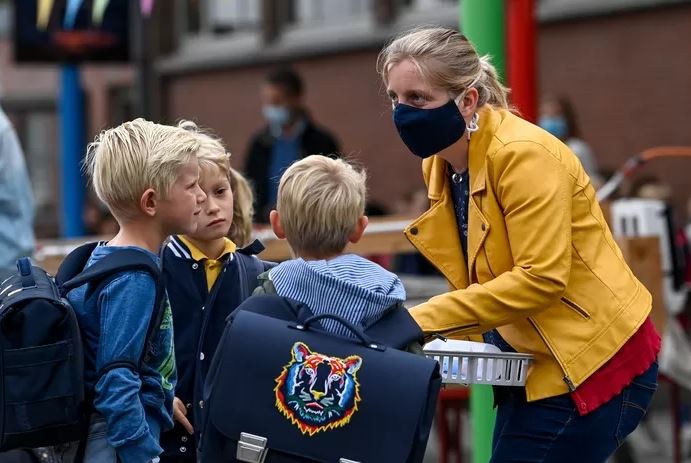Children and young people are usually not the ones bringing the coronavirus into the family, according to figures from the Flemish Agency for Care and Health.
An analysis of infection figures that occur within a family within two weeks, that De Standaard viewed, shows that the children or teenagers are not the main importers of the virus.
Within a family cluster, thirty-somethings are the main ones introducing the virus into the family, in 58% of cases. Teenagers are the source in 37% of clusters, while children under 10 years old are the source in 28%.
Additionally, barely 3% of children between 0 and 9 years old get infected by another child of the same age group. 45% of children under 10 get the virus from a 30-39 year-old, and 30% get it from a 40-49-year-old, in practice often one of the child's parents.
Among teenagers, their peers play a slightly larger role in transmitting the virus, as 29% of 10 to 19-year-olds are infected by someone in the same age group. Here too, however, the main source of infection remains the 40 to 49-year-olds.
Related News
- Consultative Committee meeting today: what we already know
- Schools will not close until 31 January, Belgian education ministers say
- Close schools until 31 January, expert warns
The Agency's Contact Research steering group reviewed the so-called "infection couples." This name is used when a contact person of someone who is infected, later also tests positive. That second person is then linked to the earlier infection.
However, not all these infection couples are found, and many remain under the radar. Additionally, while that first infected person is usually the source of the infection, that is not always the case.
The figures seem to contradict statements by Hans-Willem Snoeck, an immunologist at the Columbia University in New York, who stated that children are an "auxiliary motor of the pandemic" and proposed to close schools until 31 January to suppress a new wave of infections.
While his proposal was supported by Dirk Van Damme, head of the Centre for Educational Research and Innovation at the OECD, Belgium's Flemish and Francophone education ministers have both ruled out the possibility of keeping the schools closed after the Christmas holidays.
“We initially thought that children under the age of 10 were not a major problem,” Snoeck explained in Flemish television programme Terzake. “Now we are seeing the strongest increase there.”
However, while the number of children under 10 years old in the infection figures increased by 34% over the past week, the largest share of infections are still found in the active population, according to virologist and interfederal Covid-19 spokesperson Steven Van Gucht.
Maïthé Chini
The Brussels Times

